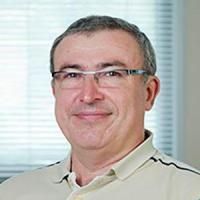Polymorphisms in the ACE and ADRB2 genes and risks of aging-associated phenotypes: the case of myocardial infarction.
Date
2010-02
Journal Title
Journal ISSN
Volume Title
Repository Usage Stats
views
downloads
Citation Stats
Abstract
Multiple functions of the beta2-adrenergic receptor (ADRB2) and angiotensin-converting enzyme (ACE) genes warrant studies of their associations with aging-related phenotypes. We focus on multimarker analyses and analyses of the effects of compound genotypes of two polymorphisms in the ADRB2 gene, rs1042713 and rs1042714, and 11 polymorphisms of the ACE gene, on the risk of such an aging-associated phenotype as myocardial infarction (MI). We used the data from a genotyped sample of the Framingham Heart Study Offspring (FHSO) cohort (n = 1500) followed for about 36 years with six examinations. The ADRB2 rs1042714 (C-->G) polymorphism and two moderately correlated (r(2) = 0.77) ACE polymorphisms, rs4363 (A-->G) and rs12449782 (A-->G), were significantly associated with risks of MI in this aging cohort in multimarker models. Predominantly linked ACE genotypes exhibited opposite effects on MI risks, e.g., the AA (rs12449782) genotype had a detrimental effect, whereas the predominantly linked AA (rs4363) genotype exhibited a protective effect. This trade-off occurs as a result of the opposite effects of rare compound genotypes of the ACE polymorphisms with a single dose of the AG heterozygote. This genetic trade-off is further augmented by the selective modulating effect of the rs1042714 ADRB2 polymorphism. The associations were not altered by adjustment for common MI risk factors. The results suggest that effects of single specific genetic variants of the ADRB2 and ACE genes on MI can be readily altered by gene-gene or/and gene-environmental interactions, especially in large heterogeneous samples. Multimarker genetic analyses should benefit studies of complex aging-associated phenotypes.
Type
Department
Description
Provenance
Subjects
Citation
Permalink
Published Version (Please cite this version)
Publication Info
Kulminski, Alexander M, Irina V Culminskaya, Svetlana V Ukraintseva, Konstantin G Arbeev, Igor Akushevich, Kenneth C Land and Anatoli I Yashin (2010). Polymorphisms in the ACE and ADRB2 genes and risks of aging-associated phenotypes: the case of myocardial infarction. Rejuvenation Res, 13(1). pp. 13–21. 10.1089/rej.2009.0905 Retrieved from https://hdl.handle.net/10161/3300.
This is constructed from limited available data and may be imprecise. To cite this article, please review & use the official citation provided by the journal.
Collections
Scholars@Duke

Alexander Kulminski

Irina Kulminskaya

Svetlana Ukraintseva
Dr. Ukraintseva studies causes of human aging and related decline in resilience, to identify genetic and other factors responsible for the increase in mortality risk with age eventually limiting longevity. She explores complex relationships, including trade-offs, between physiological aging-changes and risks of major diseases (with emphasis on Alzheimer’s and cancer), as well as survival, to find new genetic and other targets for anti-aging interventions and disease prevention. She also investigates possibilities of repurposing of existing vaccines and treatments for AD prevention and interventions into the aging. For this, Dr. Ukraintseva and her team use data from several large human studies containing rich genetic and phenotypic information (including longitudinal measurements) on thousands of individuals. Dr. Ukraintseva is a PI and Key Investigator on several NIH funded grants, and has more than 130 peer-reviewed publications, including in major journals such as Nature Reviews, Stroke, European Journal of Human Genetics, and some other.

Konstantin Arbeev
Konstantin G. Arbeev received the M.S. degree in Applied Mathematics from Moscow State University (branch in Ulyanovsk, Russia) in 1995 and the Ph.D. degree in Mathematics and Physics (specialization in Theoretical Foundations of Mathematical Modeling, Numerical Methods and Programming) from Ulyanovsk State University (Russia) in 1999. He was a post-doctoral fellow in Max Planck Institute for Demographic Research in Rostock (Germany) before moving to Duke University in 2004 to work as a Research Scientist and a Senior Research Scientist in the Department of Sociology and the Social Science Research Institute (SSRI). He is currently an Associate Research Professor in SSRI. Dr. Arbeev's major research interests are related to three interconnected fields of biodemography, biostatistics and genetic epidemiology as pertains to research on aging. The focus of his research is on discovering genetic and non-genetic factors that can affect the process of aging and determine longevity and healthy lifespan. He is interested in both methodological advances in this research area as well as their practical applications to analyses of large-scale longitudinal studies with phenotypic, genetic and, recently, genomic information. Dr. Arbeev authored and co-authored more than 150 peer-reviewed publications in these areas.

Igor Akushevich

Kenneth C. Land
I received my Ph.D. in sociology and mathematics from the University of Texas at Austin in 1969. After a year of postdoctoral study in mathematical statistics at Columbia University in New York City, I taught there and was a member of the staff of the Russell Sage Foundation for three years. I then was successively a member of the faculties of the University of Illinois at Urbana Champaign and the University of Texas at Austin before joining the Duke Sociology Department as Chairman in 1986. I served as Chair of Sociology from January 1986 to August 1997. My main research interests are contemporary social trends and quality-of-life measurement, social problems, demography, criminology, organizations, and mathematical and statistical models and methods for the study of social and demographic processes. I have done extensive research in each of these areas and have been elected a Fellow of the American Statistical Association (1978), the Sociological Research Association (1981), the American Association for the Advancement of Science (1992), the International Society for Quality-of-Life Studies (1997), and the American Society of Criminology (2004). I teach Contemporary Social Problems (SOCIOL 111), Advanced Methods of Demographic Analysis, and the Demography of Aging Proseminar (SOCIOL 750S). My other interests include tennis, jogging (10 kilometers), and music.

Anatoli I. Yashin
Unless otherwise indicated, scholarly articles published by Duke faculty members are made available here with a CC-BY-NC (Creative Commons Attribution Non-Commercial) license, as enabled by the Duke Open Access Policy. If you wish to use the materials in ways not already permitted under CC-BY-NC, please consult the copyright owner. Other materials are made available here through the author’s grant of a non-exclusive license to make their work openly accessible.
